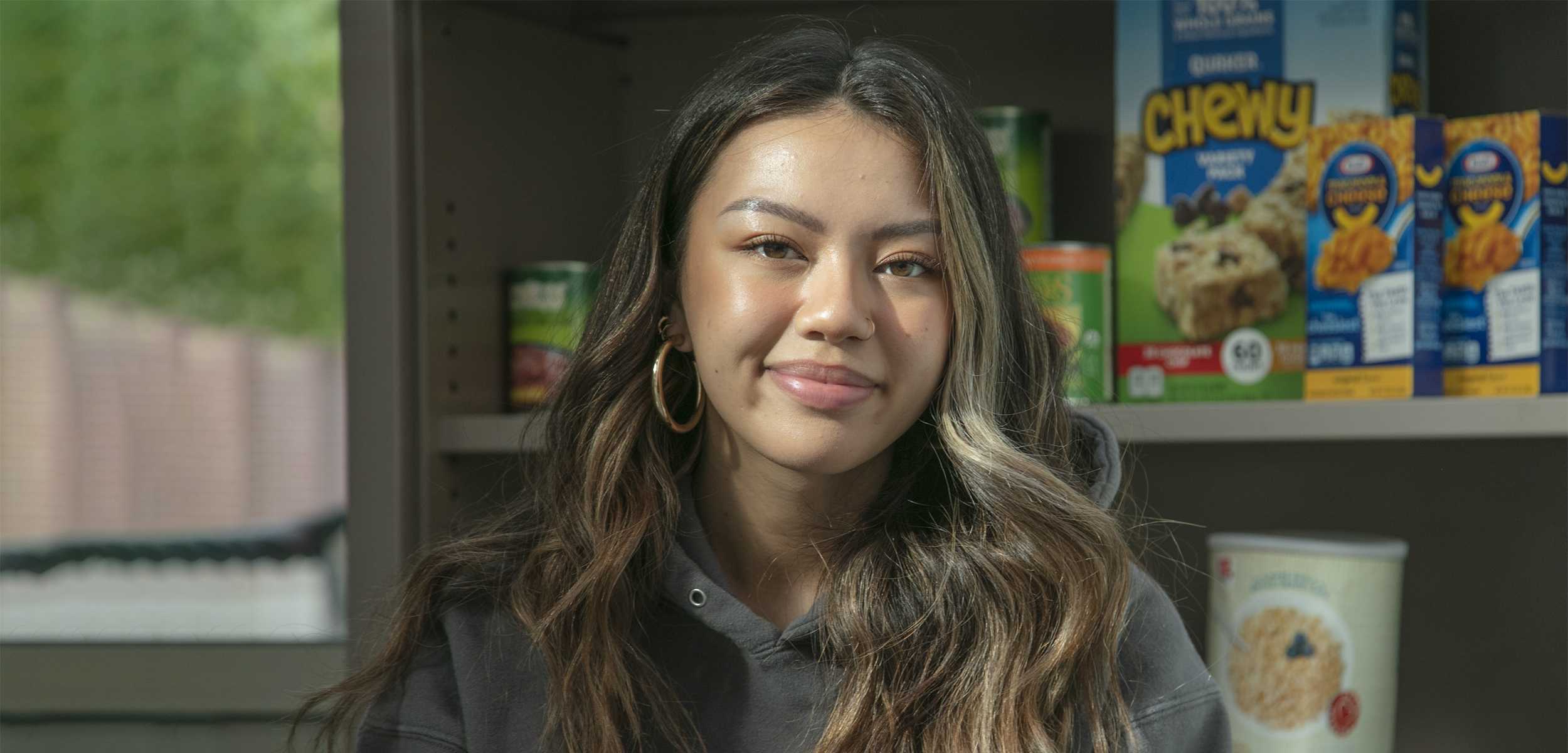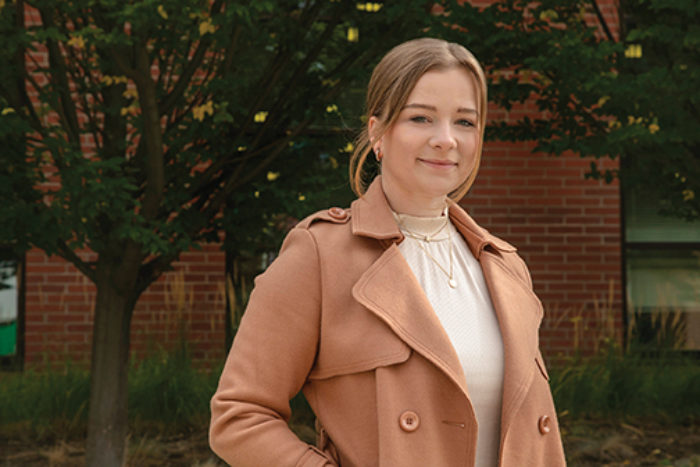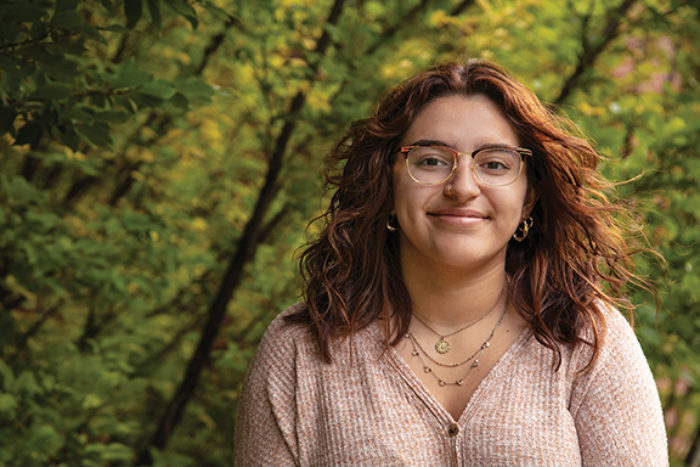
Sustainability means much more than buying green products, recycling paper and plastics, and composting. Indeed, a growing number of sustainability advocates—including many CWU students—recognize the term also applies to other areas, such as food insecurity, systemic racism, inequality, affordable housing, and other issues that predominantly impact people of color.
According to the United Nations Environment Programme, the definition of true sustainability is “understanding how our lifestyle choices impact the world around us and finding ways for everyone to live better and lighter.”
It is with that in mind that Jaeda Nelson, a CWU senior studying business administration and specializing in leadership and management, has chosen to devote her efforts to fighting food insecurity among college students and advocating for the empowerment of women of color.
Nelson is student initiative coordinator at the Diversity and Equity Center (DEC) and head of THRIVE, a women of color empowerment program. She has also been active with PUSH (Presidents United to Solve Hunger), a campus organization that manages food pantries, an emergency meal fund, and pop-up events to provide boxes of food and hygiene products to students.
“For sustainability, we talk a lot about things, items, and objects, but we don’t always address people in sustainable ways,” Nelson said. “When a lot of students’ basic needs aren’t being met, they can’t do anything, or pursue a lot of the things they want to do, or feel comfortable moving in a lot of spaces.”
Her concern is echoed by Rachael Medalia, a junior environmental studies major with a specialization in public policy and a law and justice minor. Medalia, also the ASCWU Senate Speaker, previously served as the sustainability senator for student government.
After attending a sustainability conference last year, she said she came away with the realization that sustainability is not simply an environmental concern.

Rachael Medalia
“Sustainability is more of a three-pillar issue between environmental, social, and economic,” she explained. “I hadn’t considered that social sustainability is an equally strong and important pillar as the environmental pillar, and there is much overlap between them.”
Medalia, who has been active in the Central Environmental Club since her freshman year, said it is important to recognize that people of color are more susceptible to food and housing insecurity due to factors such as the historic pay gap between white and non-white people, which has only been exacerbated by the COVID-19 pandemic.
“The EPA [Environmental Protection Agency] has a term that is related to this, which is environmental justice,” she said. “You define environmental justice as the fair treatment and meaningful involvement of all people, regardless of race, color, national origin, or income, with respect to development, implementation, and enforcement of environmental laws, regulations, and policies.”
Nelson said sustainability initiatives often focus on products and resourcing with little attention to systems that work against underserved communities.
“Initiatives on sustainability are often focused on products and resourcing with little attention toward systems that work against several underserved communities,” she said. “We have normalized food to be a low priority because society continues to dismiss its impact on student performance and well-being. Food insecurity affects students’ ability to show up for their communities and for themselves.”

Bianca Sanchez
Bianca Sanchez, a senior psychology major minoring in public health and the vice president of PUSH, echoed Nelson, noting that food and housing insecurity are very real problems for many students, including at Central.
“It affects, honestly, everything. It affects your physical health, your mental health, your school health,” she said. “It’s really tough going to class and not having anything to eat.”
Sanchez said she doesn’t think the problem of food insecurity is either well known or discussed very often at Central because many students aren’t aware of the resources available or are sometimes embarrassed to talk about their personal situations.
She said one reason college students struggle with these issues, especially once they have moved off-campus, is that they are learning for the first time how to manage their money and navigate the challenges of living independently, which include juggling the costs of utility bills, rent, and food.
“I believe that a good chunk of the student population has faced it at least once—not really knowing what to do for dinner or if they were going to have breakfast,” she said. “I’ve experienced that, so I know what it’s like to not have something to eat.”
She said food insecurity was the impetus for establishing a new centralized food pantry in Brooks Library (open to students on a more regular basis), as well as food drives, and pop-up food events held around the campus, where boxes filled with food are distributed to students.
“I also believe it’s hard for people of color to worry about sustainability because they don’t always have the resources to live sustainably,” she said. “It’s cheaper to buy a pack of plastic utensils than to buy real silverware that is better in the long run for the earth. It’s really difficult for people of color and those in lower-income communities to take part in these efforts because it’s not always affordable.”






comments powered by Disqus